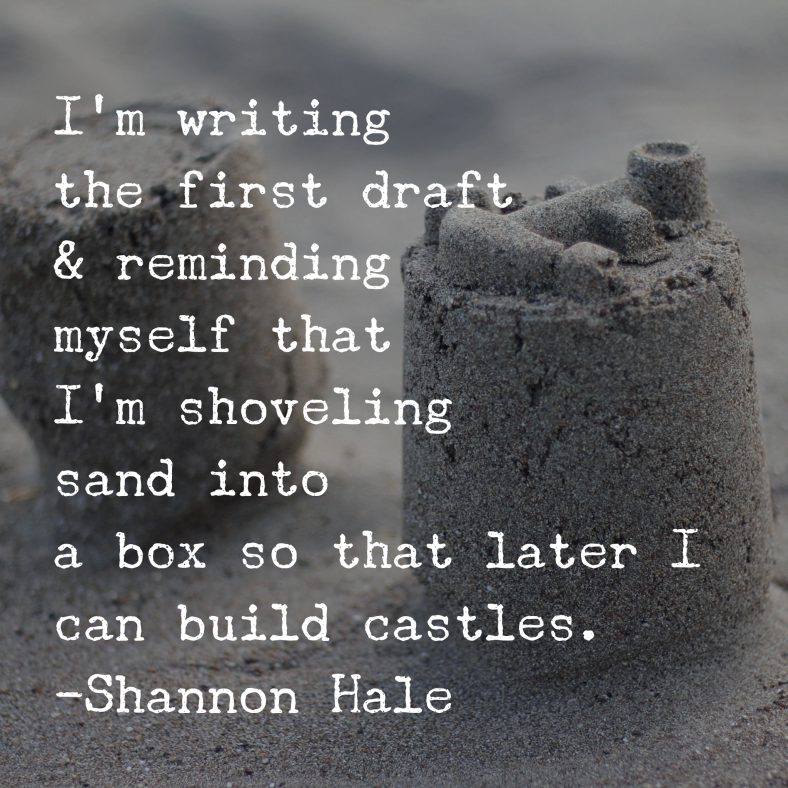
If you’re to succeed in writing—if success means writing your best story—then direct feedback (otherwise known as criticism) is invaluable, essential even.
But it’s a tricky thing. No matter how motivated you are to improve your work, criticism is by definition judgemental and aims to find fault (in the pursuit of improvement).
Here are some tips to surviving feedback or criticism, without losing the will to write. Above all, remember no work will ever be perfect and all criticism is subjective:
- Be open to learning, but listen also to your gut. Your story is ultimately your work and your responsibility. Feedback is about teaching you about the strengths and weaknesses in your writing so you can learn the techniques to get your story across better. Don’t be defensive or hasty. Let the criticism settle before deciding whether it’s useful or not.
- Before you seek feedback, ensure you’re in the right writing phase. This usually means you have a complete draft (not necessarily your first) and are about to rewrite. Some people can write a chapter and get immediate feedback, but for many, criticism too early can stifle their creativity. More on that in this link.
- Here are some ways to get feedback at varying points of your draft. Some cost money, but not all:
- Join a writers’ group – Find a local or online group, start one with like-minded writers or find one through a writers’ centre. Perhaps you want to join a group that only writes in your genre, or one that spans many genres. It’s critical to ensure the group is positive and constructive and that members want to help and support your writing, not destroy it. Avoid personalities who seek one-upmanship or are socially illiterate, which can be common. Trial several groups if you need, but don’t settle until you’re satisfied.
- Find a mentor – This is a tricky relationship that seeks to balance trust with criticism. If you find the right person it can be powerful. Ensure you get along with them and that you’ve agreed on the process beforehand. Some mentors only want to see a finished product while you might want to feed them 5 chapters at a time.
- Get a manuscript assessment – This is a 10-12 page report that covers everything from style, voice, structure, character, the opening and so on. Compared to hiring an editor, manuscript assessments are a relatively inexpensive way to receive professional comment on how to improve your story. There are publishers who require one before even looking at your story. Again, find the right person who understands, but is not limited to, your genre.
- Hire an editor – This is the most costly option but you’ll learn most from hiring and editor as you’ll get a line edit on top of a full structural edit that looks at character, voice etc.. Finding the right person is always important. Ask for a free trial first to see if you’re a match e.g. the first 3-5k words, to ensure you’re on the same page (ha ha).
- Find beta readers – Some writers ask others to read their near-finished work and give feedback. These people usually read in the same genre and won’t be afraid to tell you the truth. Beta reading is not normally paid, but there are some paid services out there not (be careful!). Be clear what you want from your beta readers but remember, they’re not professionals. High level comment is best e.g. did the story flow well, were there any slow sections, were the characters believable, what did you like and dislike most? Be warned, beta readers can be notoriously unreliable.
You could go on improving your story forever, so there’ll come a time when you’ll have to publish, in whatever form you choose. That way you can move on to the next story. We learn to write each story, and each one requires different tools, and so we continue along the learning trajectory—or is it cycle?—of writing.
Reblogged this on Speedy Reader.
LikeLiked by 1 person
Thank you Speedy Reader. Most appreciative.
LikeLiked by 1 person
Reblogging this.
LikeLiked by 1 person
Reblogged this on Author Don Massenzio and commented:
Check out this great post on the value of constructive criticism in writing from the Writing Nore blog
LikeLiked by 1 person
Thank you Don. Much appreciated.
LikeLiked by 1 person
You’re welcome.
LikeLiked by 1 person